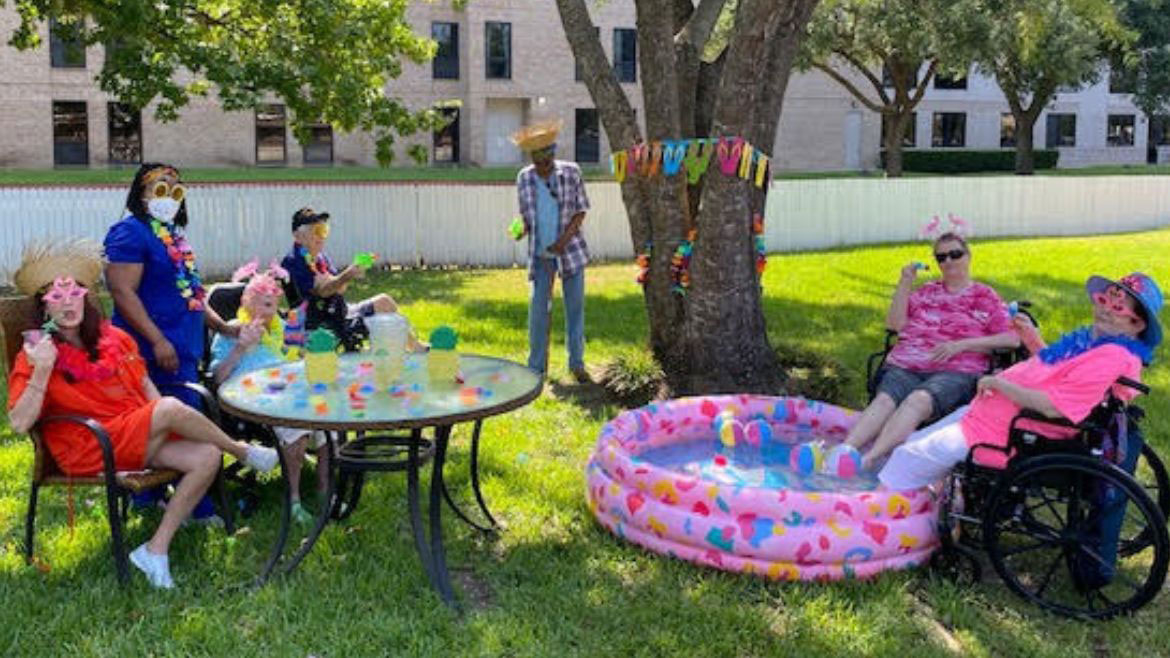How to Enjoy Getting Older
We all know getting older can be hard for some people. At Lawrence Street Health Care Center, old, inactive, and lonely are not options!
Let’s Face Fears of Aging
The way you think about yourself and the process of getting older will affect the way you view your own life. Identify the things that you’re most afraid of to help you confront them. Becoming physically frail, or developing health conditions related to aging, as well as becoming fearful about losing your independence may cause fears regarding aging. Concerns about changes in appearance can also be worrisome. Seek out role models who have engaged gracefully with aging in your own life. Learn about ways you can keep your support to retain independence as long as possible. Talk with friends, family, or professionals who are supportive.
Focus on the Good
There are many reasons to look forward to getting older. You will be able to use your lifelong experience in order to help others. Aging may allow you to slow down and enjoy your life. You may be able to enjoy learning and traveling if you have saved up an ample amount for retirement. You may have more time to focus on the positive because during retirement you may be free of work and school responsibilities for the first time in your life.
Seek Out Role Models Who Have Aged Gracefully
If you fear getting older, it may be because you associate aging with negative examples that you have witnessed. Many people enter old age with alert minds and healthy bodies and a bright appreciation for life. Look for examples to emulate in your own life, the media, and the community.
Get Moving
Find something you enjoy. Set a goal for light-moderate intensity exercise for at least two hours a week. Walking is one of the best exercises to help strengthen muscles, bones, and joints.
Fuel Up
Eat three meals daily, with an emphasis on fresh produce, lean meats, and calcium from low-fat dairy products, not supplements. Limit red meat as well as salty, fatty, and cholesterol-laden foods because they can spike blood pressure and/or increase the risk of heart disease.
Laugh Often
The act of laughing increases your intake of oxygen-rich air, stimulates your heart, lungs, and muscles, and releases endorphins.
Laughter relaxes: Laughter relieves physical tension and stress, leaving your muscles relaxed for up to 45 minutes after.
Laughing can relieve pain: Laughter releases endorphins and in addition to promoting a sense of well-being, endorphins can even temporarily relieve pain.
Laughter burns calories: According to one study, laughing for 10 to 15 minutes a day can burn about 40 calories, which could result in three to four pounds of weight loss.
Laughter can help you to live longer: According to a Norwegian study, people who have a strong sense of humor live longer than those who don’t laugh as much. For cancer patients, the difference was particularly noticeable.
Laughter protects the heart: Heart attacks and other cardiovascular conditions can be prevented by laughing since laughter improves the function of blood vessels and increases blood flow.
Laughter boosts the immune system: In addition to decreasing stress hormones, laughing increases immunity in cells and infection-fighting antibodies, which improves your resistance to disease.

